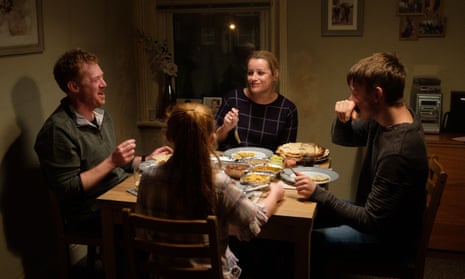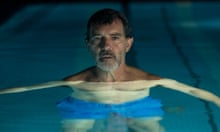Director Ken Loach and screenwriter Paul Laverty have come storming back to Cannes with another tactlessly passionate bulletin from the heart of modern Britain, the land of zero-hours vassalage and service-economy serfdom – a film in the tradition of Loach’s previous work and reaching back to Vittorio De Sica’s Bicycle Thieves. It’s fierce, open and angry, unironised and unadorned, about a vital contemporary issue whose implications you somehow don’t hear on the news.
Like their previous movie, I, Daniel Blake, it depicts the human cost of an economic development that we are encouraged to accept as a fact of life. Like I, Daniel Blake, it is substantially researched through many off-the-record interviews, and rich in detail. But I think this film is better: it is more dramatically varied and digested, with more light and shade in its narrative progress and more for the cast to do collectively. I was hit in the solar plexus by this movie, wiped out by the simple honesty and integrity of the performances. Yet my emotions were clouded by my feelings about a certain toxic political issue. Of this, more in a moment.
The drama concerns Ricky (played by Kris Hitchen) a former construction worker in Newcastle who lost both his building work and his chance of a mortgage after the economic crash of 2008. He is a hardworking, affectionate guy with a bit of a temper and a liking for drink. Now he is renting with his wife Abbie (Debbie Honeywood), a contract nurse and in-home carer who has to visit dozens of disabled, elderly and vulnerable people every day for their meals, baths and “tuck-ins” – jargon for an eerie formalised version of maternal intimacy. It’s a workload that over the years has left no time for her to tuck in her two kids at the end of the day. They are Seb (Rhys Stone), a stroppy teen who has artistic talent but is in trouble with the authorities, and his smart kid sister, Liza Jane (Katie Proctor).
Ricky’s mate persuades him to get on what looks like a nice little earner: van driving for a big delivery company. But the firm’s hard-faced manager Maloney (Ross Brewster) – a bullet-headed guy with a number-one cut – brusquely tells Ricky that he will be employed on a quasi-freelance basis, with none of the benefits of conventional employment. He has to buy or lease his own van, or rent one from the firm at a ruinous daily rate, and meet strict targets for deliveries. These are set by the all-important scanner, worryingly called a “gun”. Particularly important are the “precisors”, customers who have paid extra for precise delivery slots. Maloney shouts things like “Let’s get the cardboard off the concrete!” when all the packages are being loaded: a telling real-world detail. But Ricky has no time to go to the lavatory and has to carry an empty plastic bottle with him, a necessity which is not just mortifying but makes him vulnerable. And Maloney has not told him everything about the insurance situation.
So Ricky persuades Abbie to sell the car she needs for her work so he can buy the van that is going to be their route out of financial misery. He is hired – or in the firm’s sinister terminology, he is “onboarded” – and Laverty creates a subtle resonance when a caring and careworn copper tells Seb he has a great family and that he should “Take that onboard”.
Inevitably, inexorably, Ricky gets into trouble when ordinary human needs mean he has to take a little time off work, and the system of “sanctions” – another creepy bit of corporate jargon borrowed from the Department of Work and Pensions – means he gets into more and more debt with the firm, and has to work ever harder. Abbie also has a zero-hours contract and she can see how her patients are becoming neglected: there are some heartbreakingly lovely scenes for Honeywood here. Their family life and their relationship with their children becomes more and more toxic. It is gripping, even terrifying, especially when Ricky realises where the financial responsibility for his goods actually lies. The cast enact for us a tragic situation with a simple dignity and openness.
And here is where my qualm arises. Many people will see this film as a portrayal of real issues facing people – not silly old Brexit, which only worries people in the London bubble. Does the director himself feel like this? I don’t know. But I can only say that the European Union is the modern-day nursery of employment rights, and outside it is where working people will find more cynicism, more cruelty, more exploitation, more economic isolation and more poverty. This brilliant film will focus minds.











Comments (…)
Sign in or create your Guardian account to join the discussion